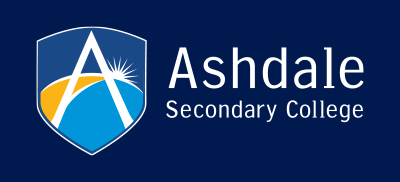Building on their English work in primary school, students continue to practise, consolidate and extend what they have learned from previous years. They also grow their language understanding and learn to transfer this knowledge to different contexts. To achieve this, students develop an understanding of the requirements of different types of texts; they are introduced to increasingly sophisticated analyses of various kinds of literary, popular culture, and everyday texts, and they are given opportunities to engage with the technical aspects of texts, including those of their choosing – and to explain why they made that choice. They also have opportunities to explore and explain what is important to them about life and society.
The notion of valuing specific texts as ‘literature’ is introduced. Students learn how such texts can be discussed and analysed about themes, ideas and historical and cultural contexts.
Students engage with a variety of genres and modes. They re-enact, represent and describe texts to display their understanding of narrative, theme, purpose, context and argument and defend their ideas in written and oral modes. Students are given further opportunities to create increasingly sophisticated and multimodal texts in groups and individually.
Opportunities for participation in Cluster activities, performance incursions and national events are open to all students, highlighting the importance of English as an area of study.
Years 7-10 English
Years 7-10 English courses follow the Western Australian Curriculum and Assessment Outline requirements as mandated by The School Curriculum and Standards Authority.
At Ashdale Secondary College, the study of English is central to the learning and development of all young Australians. It helps create confident communicators, imaginative thinkers and informed citizens. Through the study of English, individuals learn to analyse, understand, communicate with and build relationships with others and the world around them. Studying English helps young people develop the knowledge and skills needed for education, training and the workplace. It helps them become ethical, thoughtful, informed and active members of society. In this light, it is clear that the Australian Curriculum: English plays an essential part in developing the understanding, attitudes and capabilities of those who will take responsibility for Australia’s future.
Although Australia is linguistically and culturally diverse, participation in many aspects of Australian life depends on effective communication in Standard Australian English. Also, proficiency in English is invaluable globally. The Australian Curriculum: English contributes both to nation-building and to internationalisation.
The Australian Curriculum: English also helps students to engage imaginatively and critically with literature to expand the scope of their experience. Aboriginal and Torres Strait Islander peoples have contributed to Australian society, its contemporary literature, and its literary heritage through their distinctive ways of representing and communicating knowledge, traditions and experience. The Australian Curriculum: English values, respects, and explores this contribution. It also emphasises Australia’s links to Asia.
The Australian Curriculum: English Foundation to Year 10 is organised into three interrelated strands that support students’ growing understanding and use of Standard Australian English (English). Together the three strands focus on developing students’ knowledge, understanding and skills in listening, reading, viewing, speaking and writing. The three strands are:
- Language: knowing about the English language
- Literature: understanding, appreciating, responding to, analysing and creating literature
- Literacy: expanding the repertoire of English usage.
Source: www.scsa.wa.edu.au
Senior School English
Two English courses are offered to students at Ashdale Secondary College: General and ATAR. Each course is organised into four units, with Unit 1 and Unit 2 delivered in Year 11 and Unit 3 and Unit 4 in Year 12. All students enrolled in the English ATAR Year 12 course are required to sit the ATAR course examination. The examination is based on a representative sampling of the content for Unit 3 and Unit 4.
The English General course focuses on consolidating and refining the skills and knowledge needed by students to become competent, confident and engaged users of English in everyday, community, social, further education, training and workplace contexts. The course is designed to give students the skills to succeed in various post-secondary pathways by developing their language, literacy and literary skills. Students comprehend, analyse, interpret, evaluate and create analytical, imaginative, interpretive and persuasive texts in various written, oral, multimodal and digital forms.
The English ATAR course develops students’ analytical, creative, critical thinking and communication skills in all language modes. It encourages students to critically engage with texts from their contemporary world, texts from the past and from Australian and other cultures. Such engagement helps students develop a sense of themselves, their world and their place in it.
Through close study and extensive reading, viewing and listening, students develop the ability to analyse and evaluate texts’ purpose, stylistic qualities and conventions and enjoy creating their own imaginative, interpretive, persuasive and analytical responses. The English ATAR course is designed to develop students’ facility with all types of texts and language modes and to foster an appreciation of the value of English for lifelong learning.
Students refine their skills across all language modes by engaging critically and creatively with texts. They learn to speak and write fluently in various contexts and to create multiple text forms. They hone their oral communication skills through discussion, debate and argument in formal and informal situations.

